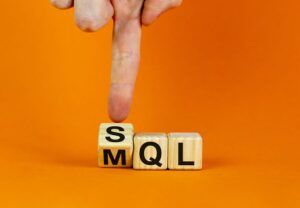IRS Form 1125-E is used to report compensation for corporate officers, and state law determines who is considered an officer for the purposes of Form 1125-E reporting. The form is required for S corporations (S-corps) or C corporations (C-corps) with gross receipts of $500,000 or more for the year. Example – Completing Form 1125-E Joe…
What is
Facial Recognition in Retail: Everything You Need to Know
Facial recognition is technology that recognizes human faces and matches them to images of faces stored in a database. This technology has been around for years—in your smartphone camera, for example—but commercial establishments are also beginning to use it for retail applications. Brands can use facial recognition technology to improve customer service, increase operations efficiency…
What Is an SEO Audit? (+ SEO Audit Checklist)
By now, you’ve probably heard “SEO” a million times and maybe are still wondering what it is. Search engine optimization is how a business can fine-tune its site to attract more search traffic. But how do you know whether your optimization efforts are working? By conducting an SEO audit. An SEO audit is a deep…
What Sales Qualified Leads (SQL) Are & How to Use Them
Sales qualified leads (SQLs) are warm leads nurtured by your marketing team, found at the bottom of the sales funnel or the decision-making stage. SQLs have already received a sales pitch or engaged in a marketing campaign and expressed high-level interest in a product demo or a sales offer. Because of the SQL’s high likelihood…
What Is a Statement Descriptor? Examples & Best Practices
Clear statement descriptors help customers recognize charges on their credit card statements and prevent them from filing unnecessary chargeback claims.
Statement descriptors are text used to provide customers with transaction information on their credit card bills. A standard statement descriptor includes the business name, phone number or location, and the transaction amount. However, some payment processors further customize statement descriptors to include additional information such as product or service name and invoice numbers. Customers use…
Types of CRM Software: Which One Is Right for Your Business?
Customer relationship management (CRM) software is a tool businesses use to manage and improve their relationships and interactions with existing and potential customers. There are four fundamental types of CRMs: operational, analytical, collaborative, and strategic. Here, we outline the features and benefits of each type of CRM system, including their best use cases and examples,…
What Is a Convenience Fee & Where Is It Legal?
Convenience fees are charges imposed by merchants on credit card transactions that pass on the cost of accepting credit card payments to customers. However, only merchants whose primary method is anything other than credit cards can impose convenience charges. Some examples are accepting payment for bills, taxes, and event tickets purchased online instead of at…
What Is Deinfluencing? A New Age of Marketing Explained
We all know what influencers are—but in an age of consumer distrust, deinfluencers might hold even more sway.
At the start of the New Year, my social media feeds took a turn toward anti-consumerism as established influencers and new creators alike began “deinfluencing” me. As you might have gleaned from the name of the phenomenon, deinfluencing is when online creators try to convince you not to purchase certain products, exposing why they don’t…







